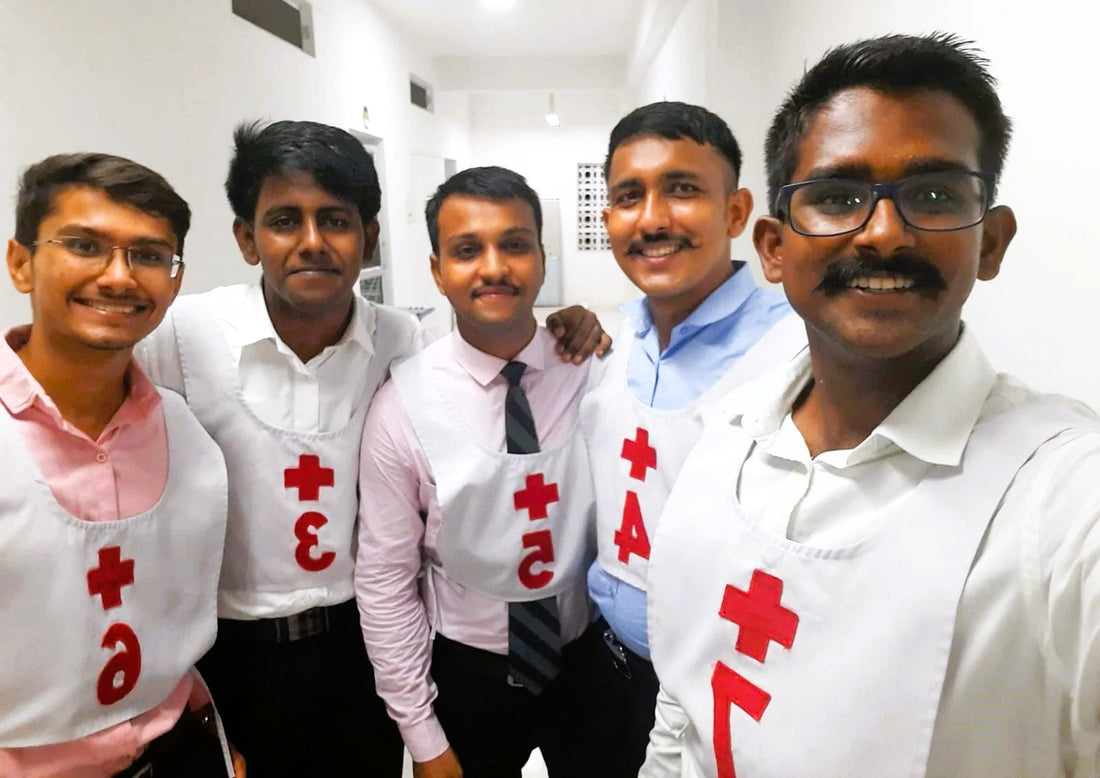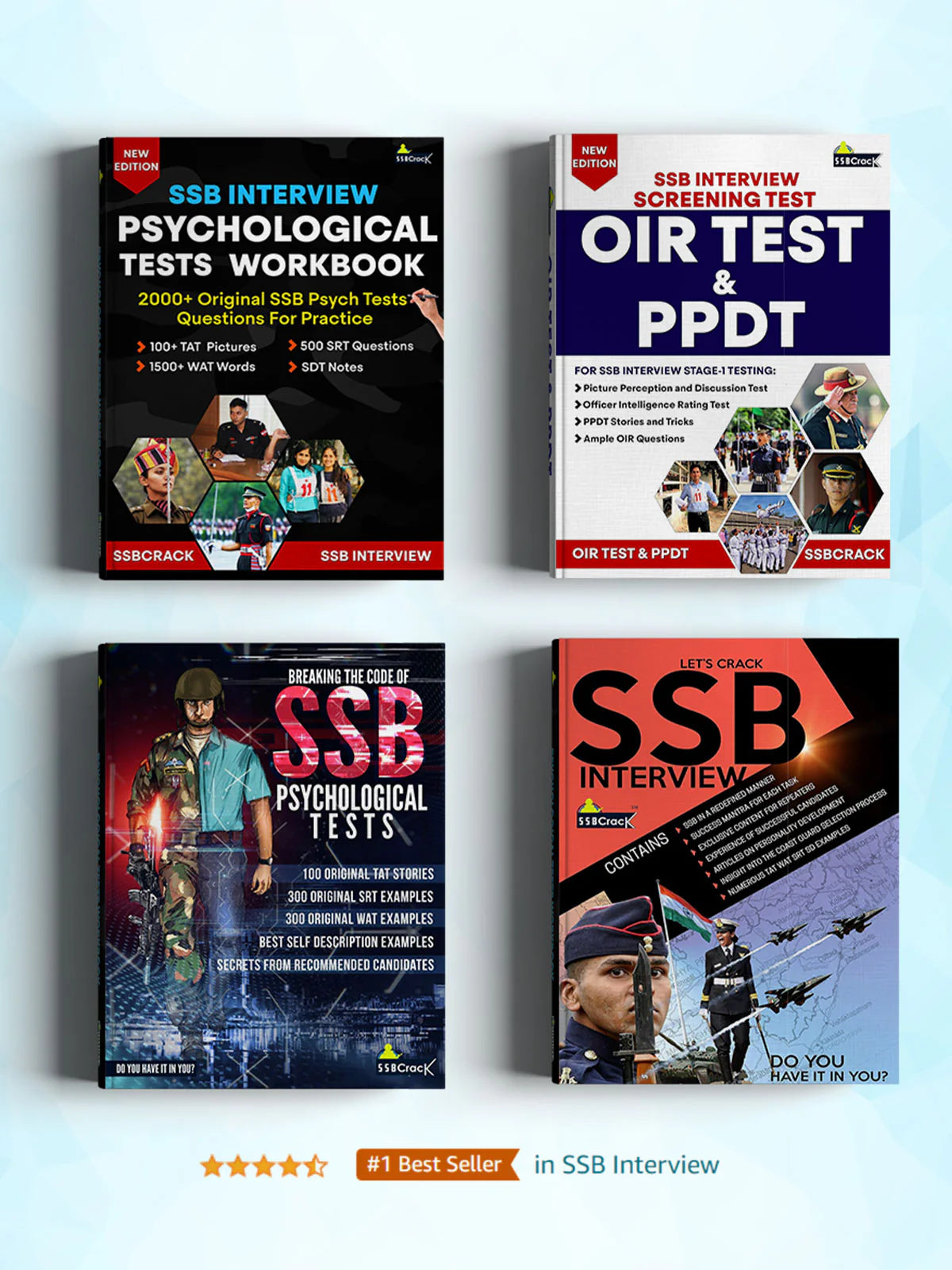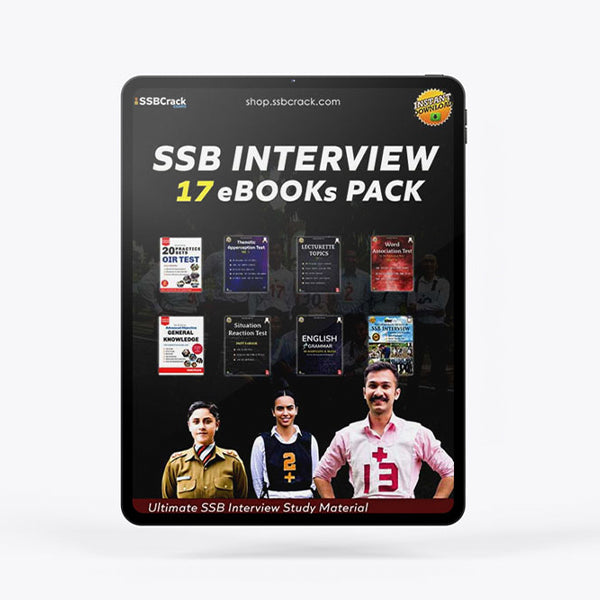SSB Interview WAT: Full Details & 100 Examples

Introduction to the Word Association Test (WAT)
The Word Association Test (WAT) is a critical component of the Service Selection Board (SSB) interview process for candidates aspiring to join the Indian defence forces. This psychological assessment technique aims to reveal a candidate's subconscious thought patterns, emotional responses, and inherent personality traits by analyzing their spontaneous reactions to stimulus words.
The WAT functions as a window into a candidate's mind, allowing assessors to evaluate qualities essential for military leadership such as:
- Emotional stability and resilience
- Creative thinking and problem-solving abilities
- Values and moral judgment
- Leadership potential and decision-making aptitude
- Communication skills and clarity of thought
Methodology and Structure of the SSB WAT
During the Word Association Test, candidates are presented with a series of 60 words, one at a time. For each word, candidates must:
- Write a meaningful and contextually appropriate sentence
- Respond within 15 seconds per word
- Express their genuine, spontaneous thoughts without overthinking
The time constraint is deliberately imposed to elicit unfiltered responses that reflect the candidate's true personality rather than calculated answers. This rapid-response format reveals how candidates process information and react under pressure—qualities critical for military service.
Key Attributes Evaluated in the WAT
The SSB assessors meticulously analyze candidates' responses to gauge several essential attributes:
- Creativity and Original Thinking: The ability to formulate innovative and unique responses demonstrates lateral thinking capabilities vital for tactical situations.
- Emotional Intelligence: Responses reveal emotional maturity, stability, and the capacity to handle stress—crucial for maintaining composure in high-pressure military scenarios.
- Leadership Potential: Assertive, decisive, and solution-oriented responses indicate natural leadership inclinations.
- Adaptability: The variety and flexibility in responses showcase a candidate's ability to adjust to dynamic and challenging circumstances.
- Decision-Making Skills: Quick, coherent responses reflect the capacity to think clearly and make sound judgments under time constraints.
- Communication Clarity: Well-articulated sentences demonstrate effective communication abilities necessary for team coordination.
- Values and Ethics: Responses often unconsciously reveal a candidate's moral compass, integrity, and commitment to service values.
100 WAT Examples with Recommended Response Approaches
Here are 100 WAT stimulus words with guidance on crafting effective responses:
1-20: Core Values and Leadership Qualities
- Time - "Effective time management is crucial for mission success."
- Family - "My family instilled the values of discipline and respect in me."
- Nation - "Serving the nation with integrity is my highest priority."
- Challenge - "I embrace challenges as opportunities for personal growth."
- Education - "Continuous education enhances our professional capabilities."
- Adventure - "Military life offers adventure alongside purpose and duty."
- Loyalty - "Loyalty to comrades builds unbreakable unit cohesion."
- Responsibility - "Taking responsibility for one's actions defines true leadership."
- Courage - "Courage means facing fears while fulfilling one's duty."
- Success - "Team success matters more than individual achievement."
- Sacrifice - "Sacrifice without hesitation is the hallmark of a soldier."
- Patriotism - "Patriotism motivates me to serve with unwavering dedication."
- Authority - "Authority must be exercised with fairness and wisdom."
- Teamwork - "Complex missions succeed through coordinated teamwork."
- Power - "Power comes with the responsibility to protect the vulnerable."
- Leadership - "Effective leadership inspires others to exceed expectations."
- Innovation - "Tactical innovation provides advantages in challenging situations."
- Unity - "Unity in diversity strengthens our armed forces."
- Ambition - "My ambition is to become an officer worthy of my troops' respect."
- Integrity - "Maintaining integrity under pressure defines character."
21-40: Military Skills and Professional Development
- Discipline - "Discipline transforms potential into consistent performance."
- Environment - "Adapting to any environment is essential for military operations."
- Motivation - "Internal motivation sustains performance when challenges arise."
- Technology - "Embracing technology enhances our strategic capabilities."
- Service - "Service before self guides every decision I make."
- Confidence - "Quiet confidence inspires trust among subordinates."
- Strength - "Mental strength often proves more crucial than physical power."
- Friendship - "Battlefield friendships are forged through shared hardship."
- Duty - "Duty calls us to act even when personal sacrifice is required."
- Competition - "Healthy competition drives excellence in military training."
- Hard work - "Hard work consistently outperforms natural talent alone."
- Respect - "Mutual respect forms the foundation of military discipline."
- Tradition - "Military traditions connect us to generations of service."
- Adversity - "Facing adversity reveals one's true character and resilience."
- Compassion - "Compassion for civilians distinguishes professional soldiers."
- Diversity - "Diversity of thought enhances our problem-solving capabilities."
- Inspiration - "Leaders must provide inspiration during difficult missions."
- Determination - "Unwavering determination overcomes seemingly impossible odds."
- Creativity - "Tactical creativity can transform disadvantages into advantages."
- Adaptability - "Rapid adaptability determines survival in combat situations."
41-60: Social and Community Engagement
- Community - "Military service strengthens the bond with local communities."
- Prosperity - "National prosperity depends upon security and stability."
- Security - "Security enables citizens to pursue their aspirations freely."
- Sacrifice - "Willingness to sacrifice defines the military profession."
- Initiative - "Taking initiative creates opportunities for mission success."
- Harmony - "Operational harmony requires synchronized individual efforts."
- Perseverance - "Perseverance turns obstacles into stepping stones."
- Commitment - "Unwavering commitment distinguishes exceptional officers."
- Trust - "Trust must be earned through consistent, ethical leadership."
- Faith - "Faith in our training helps maintain composure under fire."
- Respect - "Respecting diverse perspectives leads to better decisions."
- Change - "Embracing change enables tactical and strategic advantages."
- Honor - "Honor remains when everything else is lost."
- Independence - "Independence of thought balances respect for authority."
- Discipline - "Self-discipline precedes effective leadership of others."
- Skill - "Continuous skill development distinguishes professional soldiers."
- Freedom - "Freedom requires eternal vigilance and readiness."
- Justice - "Military justice must be swift yet fair and impartial."
- Respect - "Genuine respect transcends rank and position."
- Faith - "Faith in comrades sustains us through the darkest hours."
61-80: Personal Growth and Development
- Optimism - "Realistic optimism maintains morale during extended operations."
- Growth - "Personal growth continues throughout a military career."
- Tradition - "Honoring tradition while embracing innovation ensures relevance."
- Confidence - "Quiet confidence emerges from thorough preparation."
- Adaptability - "Adaptability transforms obstacles into opportunities."
- Honor - "Living with honor means making difficult choices daily."
- Integrity - "Integrity means doing right even when no one is watching."
- Enthusiasm - "Enthusiasm for the mission inspires subordinates to excel."
- Empathy - "Empathy for troops builds loyalty and unit cohesion."
- Resilience - "Resilience turns setbacks into valuable learning experiences."
- Sacrifice - "Small sacrifices prepare us for greater ones when needed."
- Purity - "Purity of intention leads to clarity in decision-making."
- Humanity - "Humanity distinguishes professional soldiers from mercenaries."
- Wisdom - "Wisdom applies knowledge with judgment and foresight."
- Pride - "Pride in the unit motivates exceptional performance."
- Resourcefulness - "Resourcefulness transforms limited means into success."
- Determination - "Quiet determination accomplishes what talent cannot."
- Progress - "Incremental progress leads to transformative results."
- Empowerment - "Empowering subordinates multiplies unit effectiveness."
- Harmony - "Internal harmony produces external strength and focus."
81-100: Vision and Future Orientation
- Health - "Physical and mental health underpin combat readiness."
- Tolerance - "Tolerance for discomfort builds mental toughness."
- Equality - "Equality of opportunity motivates soldiers to excel."
- Heritage - "Our military heritage guides modern decision-making."
- Adventure - "The greatest adventure lies in service to others."
- Purpose - "Clear purpose transforms ordinary efforts into extraordinary results."
- Bravery - "True bravery acknowledges fear yet acts despite it."
- Unity - "Unity of command ensures coordinated battlefield action."
- Courage - "Moral courage often demands more than physical bravery."
- Gratitude - "Gratitude for opportunities motivates exceptional service."
- Legacy - "Every officer contributes to the unit's enduring legacy."
- Creativity - "Tactical creativity emerges from disciplined training."
- Sustainability - "Sustainable operations preserve long-term effectiveness."
- Prosperity - "National prosperity depends on security and stability."
- Patriotism - "Patriotism translates into daily dedication to duty."
- Justice - "Justice applied fairly strengthens unit discipline."
- Vision - "Strategic vision anticipates challenges before they arise."
- Opportunity - "Challenges reframed become strategic opportunities."
- Harmony - "Harmonious functioning of diverse elements creates strength."
- Leadership - "Leadership is earned daily through example and service."
Strategies for Excellence in the WAT
1. Maintain Authenticity
Respond genuinely rather than crafting elaborate or impressive-sounding sentences. Assessors are trained to detect inauthentic responses that don't align with your overall psychological profile.
2. Focus on Positive, Solution-Oriented Thinking
Frame responses to demonstrate constructive thinking, resilience, and problem-solving orientation rather than negativity or defeatism. Military leadership requires optimism tempered with realism.
3. Balance Introspection with Action
Show self-awareness and reflection while emphasizing decisive action and implementation. Military officers must be both thoughtful and decisive.
4. Demonstrate Values Alignment
Subtly reflect core military values like integrity, duty, courage, and service in your responses without forcing them artificially. These values should emerge naturally through your authentic thought processes.
5. Practice Cognitive Agility
Train yourself to generate meaningful responses quickly by practicing with random words daily. This develops the mental flexibility required for the timed test conditions.
6. Manage Emotional Responses
When presented with emotionally triggering words, practice maintaining composure and responding thoughtfully rather than reactively. Emotional stability is crucial for military leadership.
7. Cultivate Mental Discipline
Develop the ability to focus intently on each word without worrying about previous responses or anticipating future ones. Stay present and engaged throughout the entire test.
Common Pitfalls to Avoid
- Negativity: Avoid pessimistic or cynical responses that suggest a defeatist attitude.
- Excessive Aggression: While assertiveness is valued, responses showing unnecessary aggression may raise concerns about temperament.
- Shallow Responses: Simple definitions or obvious associations demonstrate limited depth of thinking.
- Inconsistency: Dramatic variations in response style or content may indicate instability or lack of coherent personality.
- Overthinking: Attempting to craft "perfect" responses often leads to artificiality that assessors can detect.
- Social Desirability Bias: Trying too hard to give "correct" answers rather than authentic responses undermines the test's purpose.
- Repetitiveness: Using the same response structure or themes repeatedly shows limited cognitive flexibility.
Conclusion
The Word Association Test serves as a sophisticated psychological tool that provides valuable insights into a candidate's suitability for military leadership. Success in the WAT comes not from memorizing "correct" answers but from developing genuine psychological readiness through:
- Cultivating mental agility and quick thinking
- Building emotional intelligence and stability
- Aligning personal values with service ethos
- Developing clarity of thought and expression
- Practicing authenticity and self-awareness
By understanding the underlying principles of the WAT and approaching it with honesty, mental discipline, and awareness of the qualities being assessed, candidates can demonstrate their natural fit for the challenges and responsibilities of military service. Remember that the WAT is just one component of the comprehensive SSB assessment—it works in conjunction with other tests to create a holistic picture of each candidate's potential as a future officer in the defence forces.
What is PPDT in SSB Interview? A Complete Guide for Aspiring Candidates





















